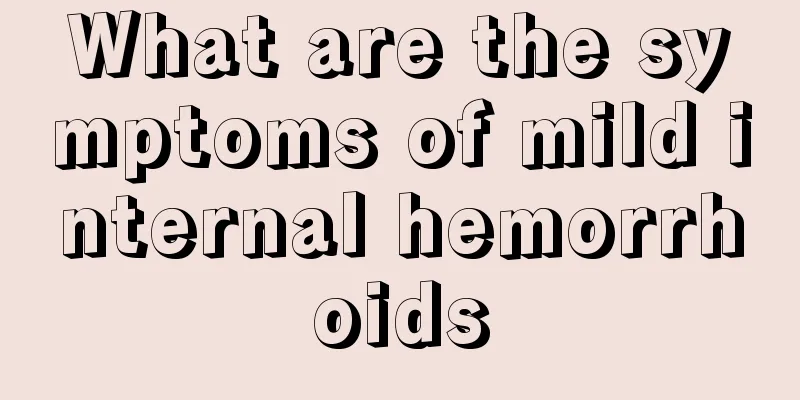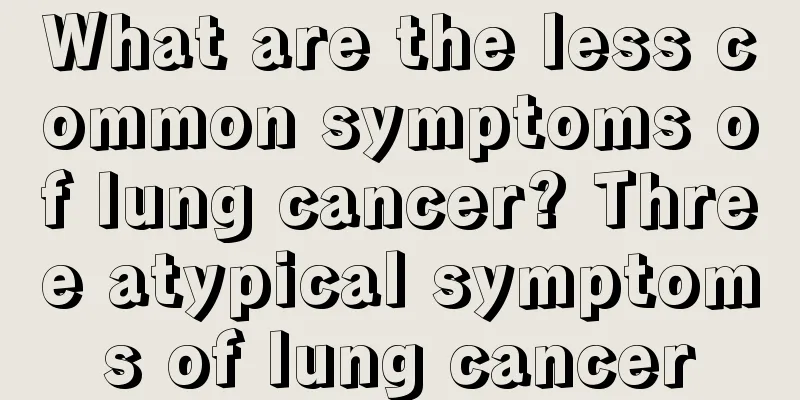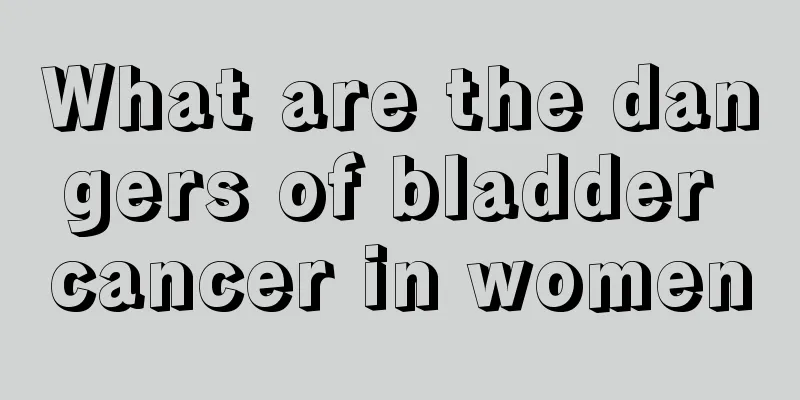What are the symptoms of mild internal hemorrhoids

|
Mild internal hemorrhoids are actually a type of hemorrhoids, but the symptoms are relatively milder. We must also treat mild internal hemorrhoids in a timely manner, otherwise it will easily lead to other diseases. Now let’s take a look at the symptoms of mild internal hemorrhoids. 1. Blood in the stool. The characteristic is painless and intermittent discharge of bright red blood after defecation, which is also a common symptom of mixed hemorrhoids and internal hemorrhoids in the early stage. Sometimes there is a small amount of blood on the surface of the stool, and sometimes it is dripping blood or spurting blood. Because feces abrades the mucosa, or because of excessive force during defecation, the pressure in the blood vessels increases, causing varicose veins to rupture, resulting in spurt-like bleeding during defecation. Long-term and repeated bleeding, or multiple heavy bleeding, can also cause anemia. 2. Pain: The early symptoms of simple internal hemorrhoids are generally painless, and sometimes only a feeling of heaviness in the anus or difficulty in defecation. If the hemorrhoids are inflamed and swollen, there may be thrombosis or incarceration in the hemorrhoids, which will cause pain; if they are prolapsed and not repositioned in time, the pain will worsen; if incarceration occurs, there will be ulceration and necrosis, causing inflammation and edema of the anal margin, the pain will be severe and the patient will be restless. 3. Early symptoms of internal hemorrhoids include mucus discharge: the rectal mucosa is stimulated by hemorrhoids for a long time, causing increased secretions; in the late stage of internal hemorrhoids, secretions often flow out of the anus due to relaxation of the anal sphincter. In mild cases, it will flow out during bowel movements, and in severe cases, it will flow out naturally even without bowel movements. When internal hemorrhoids prolapse, there will be more discharge. 4. Itching is also an early symptom of internal hemorrhoids: due to the stimulation of secretions or prolapsed hemorrhoids, the area around the anus becomes damp and unclean, causing eczema and itching. The itching sometimes persists for a long time due to the repeated effects of prolapse of internal hemorrhoids. 5. Internal hemorrhoid attack: The early symptoms of internal hemorrhoids are usually mild and painless. They will be aggravated if there is constipation or diarrhea, which is called internal hemorrhoid attack. When internal hemorrhoids occur, the hemorrhoids suddenly swell, protrude, burn, and hurt, and feel throbbing and like a foreign object. Due to the squeezing of dry and hard feces, hemorrhoids are prone to infection, ulceration and bleeding, and the attack usually lasts 3 to 5 days. If treated properly, the swelling will gradually disappear and the blood clot will be absorbed. Hemorrhoids can soften and shrink. However, due to infection, suppuration, ulceration or obstructed blood circulation, hemorrhoids may become necrotic, making the condition worse. |
<<: What is the best way to whiten fluorosis teeth
>>: What is the reason for facial paralysis caused by air conditioning
Recommend
Preventing gastroenteritis in summer
The summer is very hot and humid, which can make ...
Imaging examination methods for nasopharyngeal carcinoma
Nasopharyngeal carcinoma occurs in deep parts of ...
What to do if your leather jacket is wrinkled? Here are some tips on how to remove wrinkles on your leather jacket
Compared with other clothing, leather jackets are...
What should you pay attention to with pancreatic cancer
What should you pay attention to with pancreatic ...
Treatment of colon cancer in the elderly
The occurrence of colon cancer is closely related...
Causes of prostate cancer in men
Many readers are still unfamiliar with prostate c...
Is it okay not to take anti-inflammatory drugs after an abortion
Nowadays, more and more female friends choose to ...
How to relieve itching caused by hyperthyroidism
Hyperthyroidism, abbreviated as "hyperthyroi...
Side effects of magnetic therapy
Magnetic therapy is a very advanced treatment met...
What is the specific diagnosis method for lung cancer
There are 11 diagnostic methods for lung cancer, ...
What are the benefits of fresh coconut milk
Everyone knows that fresh coconut juice is the be...
Dietary considerations for patients with pituitary tumors after surgery
Pituitary tumors seriously endanger the health of...
The blood pressure lowering principle of antihypertensive drugs
Antihypertensive drugs have certain blood pressur...
How to care before and after breast cancer surgery
How to care before and after breast cancer surger...
Where is the best place to treat ovarian tumors
Ovarian tumors are a very common type of female g...









